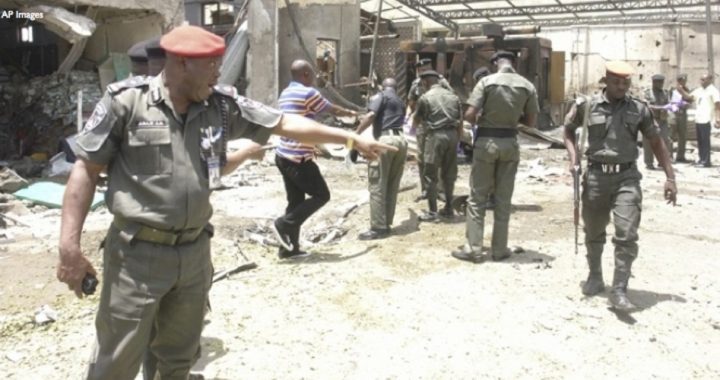
Recent attacks on churches in Nigeria and Kenya are signaling that there is little chance Islamist terrorists will abandon their war on Christianity any time soon. According to press reports, nearly two dozen people are dead as a result of a series of attacks this past weekend. The Vatican was quick to denounce the attacks, but it remains to be seen what reaction will be forthcoming from the Obama administration.
According to a story from the Italian news agency, AGI, twenty-one people were killed in the attacks. In Nairobi, Kenya, a grenade killed one person and wounded ten others. An al-Qaeda linked organization, Shabaab, has been blamed for the attack, though it has not yet claimed responsibility.
The attack in Kano, Nigeria, was even more brutal, when terrorists targeted worship services which were being held on the campus of Bayero University this past Sunday. An AFP story offers details from the horrific attack:
Witnesses said the attackers arrived in a car and two motorcycles, opening fire and throwing homemade bombs, causing a stampede. They said worshippers were gunned down as they sought to flee.
“They first attacked the open-air service outside the faculty of medicine,” one witness said. “They threw in explosives and fired shots, causing a stampede among worshippers. They now pursued them, shooting them with guns. … They also attacked another service at the sporting complex.”
A witness who said he was at the sporting complex at the time of the attack reported hearing gunshots outside while they were praying.
Later in the day, another attack was carried out in the city of Maiduguri. As in Kenya, an al-Qaeda affiliated group — Boko Haram — is suspected as the source of the attacks, but has not claimed responsibility. Although fewer people were killed in the Malduguri attack, the second attack may have carried symbolic significance, a story for the Seattle Times details an attack that was quite similar to that which took place in Kano:
The city of Maiduguri, the target of second attack, is where Boko Haram once had its main mosque.
Witnesses who declined to give their names out of fear the sect would target them said the gunmen stormed into the service and began firing. Most escaped, though as people came out of hiding later they found the pastor dead in a pool of blood in the sanctuary, witnesses said. Four other worshippers died in the attack, they said.
The coordination of two attacks in Nigeria, and the possibility that these attacks were timed to coincide with a third attack in Kenya, points to the possibility that Jihadist attacks are becoming increasingly coordinated in Africa. Boko Haram’s murder of approximately 450 people in 2011 — part of a campaign to drive Christians out of the northern, predominantly Muslim, areas of Nigeria — may be surpassed by this year’s casualty count. Already, at least 185 people have been murdered by Boko Haram since the beginning of 2012.
Although the attacks on Sunday targeted churches, not all of Boko Haram’s victims are murdered while at worship. As the Seattle Times reports, only a few days before the Sunday attacks:
… the sect carried out a suicide car bombing at the Abuja offices of the influential newspaper ThisDay and a bombing at an office building it shared with other publications in the city of Kaduna. At least seven people were killed in those attacks. Late Thursday night, gunmen also bombed a building at the campus of Gombe State University, though authorities said no one was injured in the attack.
While the Nigerian government has attempted to open negotiations with Boko Haram, the Jihadists have shown little indication of a willingness to seek a settlement with the government. For now, it is likely that the campaign of terror will continue.
Photo: A police officer points at the site of a bomb explosion in Abuja, Nigeria, April. 26, 2012, where a suicide bomber detonated a car loaded with explosives at the office of a major Nigerian newspaper ThisDay: AP Images



